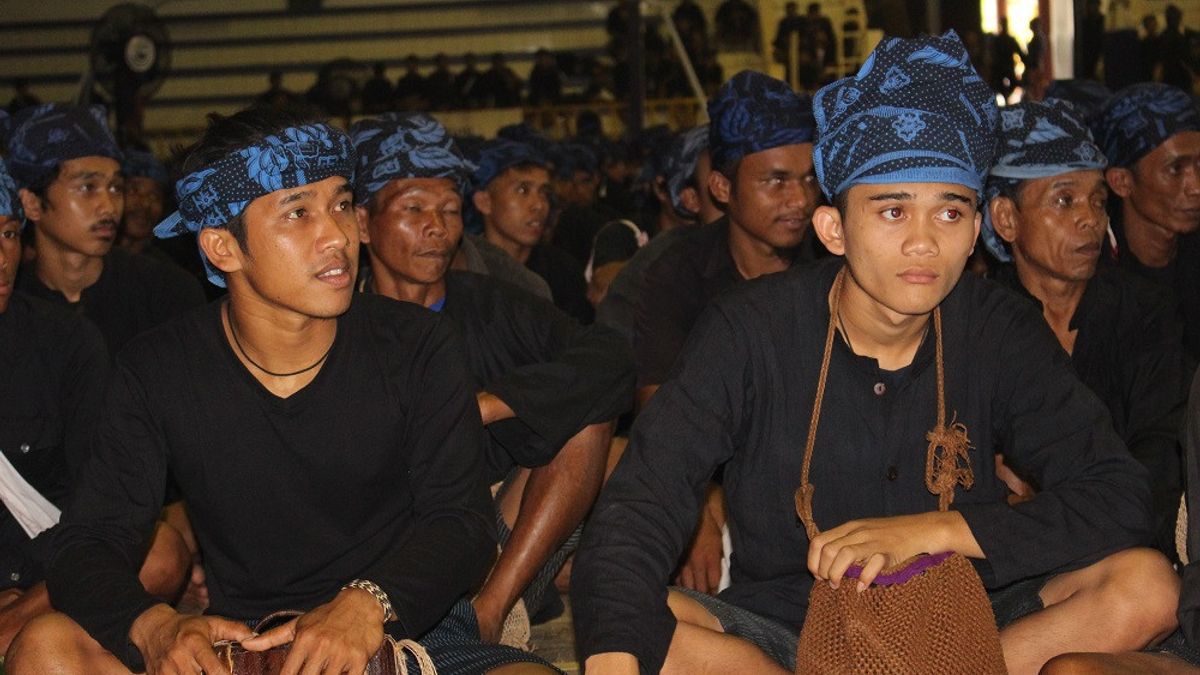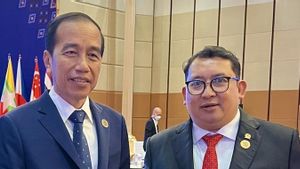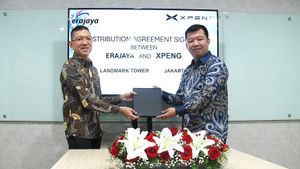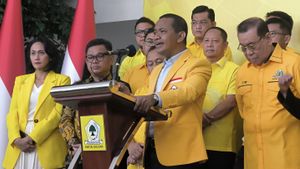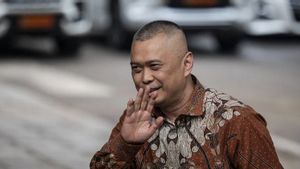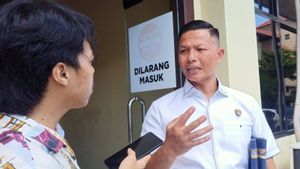JAKARTA - Baduy became a conversation when President Joko Widodo (Jokowi) wore the traditional Outer Baduy attire at the 2021 MPR RI Annual Session. One of them was the discussion about the mention of Baduy which was apparently not liked by the Kenekes themselves. Because the name Baduy is considered a mockery for the local population. So what's the history?
There are many versions regarding the origin of the Baduy community. Some say the Baduy are refugees from Padjajaran Bogor. Another version says that the Baduy people came from North Banten who moved towards the mountains to the south of Banten and settled in Kanekes Village which they live in now due to socio-political influences.
Although the two versions differ in terms of where they live, both versions agree that the Baduy are refugees from their place of origin. Pleyte (1909) for example, considers the Baduy people to come from the Bogor area, namely Padjajaran. Meanwhile, Jacob and Meijer JJ (1891) argued that the Baduy people fled from the influence of Islam led by Maulana Hasanudin who was thought to have come from the North Banten area.

Meanwhile, Kruseman and Penning married the two views by saying that the Baduy were residents of Banten who claimed to be of Padjadjaran descent and then felt pressured by Maulana Hasanudin in the 16th century. They then fled to the Kendeng Mountains area and inhabited the area until now because they do not want to embrace Islam.
Sucipto and Limbeng in the Study on Religion of the Baduy Community in Kanekes Village, Banten Province (2007) explained that the term Baduy or used to refer to residents of Kenekes Village, was given by outsiders. The name arose because they settled in an area called Cibaduy.
But according to Sucipto et al, there is also another assumption that the term is a mockery of the residents of South Banten who have embraced Islam. "They call people who are not Muslim and always move around like the Badawi people in Arabia, as Baduy... Meanwhile, Dutch writers call this group badoe'i; badoej, badoewi; Kanekes and Rawyan people, " wrote Sucipto et al (2007: 17).
Forever called BaduyIn the 1980s civil registration began to be mandatory for people living in Kanekes Village. They must be registered as residents by having an ID card. And at that time, said Sucipto et al: "They do not refuse when they are written as Baduy people. Even though they themselves call themselves urang Kanekes or urang Rawyan, or call themselves according to their hometowns, such as urang Cibeo, urang Cikertawana or Cikeusik."
Still according to Sucipto et al, the confusion about the origin of the Kanekes people lies in the closedness of the Baduy community itself. Sucipto et al explained, according to them, the origin of the life of the Kanekes people is taboo to reveal.
"The beliefs and legends that develop tend to leave their history behind. There is an assumption that the past is the same as the present, making the Baduy people relatively have no clear historical evidence," he wrote.

Even so, the Kanekes people are famous for upholding the values of their ancestors. For example, they have an obligation to perform tapa dunya or tapa mandala, including maintaining their natural environment as the center of the world.
In addition, in terms of kinship, Baduy people have the obligation to "nurturing the queen, ngjayakeun menak" (nurturing the queen and guiding the dignitaries). They assume that the queen and menak are in dayeuh (city) not in Kanekes. So, Kanekes felt that both positions must be nurtured and guided and felt taboo to rebel against the government.
One of the manifestations of upholding the value of kinship is by doing annual seba to the local government. The seba ritual is to deliver crops after harvest as an expression of gratitude and acknowledgment to the government they call the Queen.
*Read other information about HISTORY OF NUSANTARA or other interesting articles from Ramdan Febrian Arifin.
Other MEMORIESThe English, Chinese, Japanese, Arabic, and French versions are automatically generated by the AI. So there may still be inaccuracies in translating, please always see Indonesian as our main language. (system supported by DigitalSiber.id)
